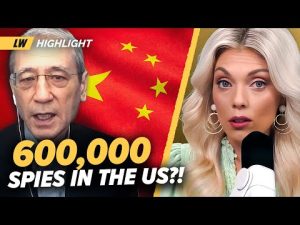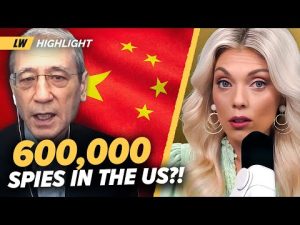In a world filled with uncertainty, tensions between countries can escalate quickly, and that’s exactly what seems to be happening between Russia and Ukraine. The U.S. Ambassador to NATO, Matthew Whitaker, recently shared his thoughts on the situation, shedding light on the possible motivations of Russian President Vladimir Putin. According to Whitaker, deciphering Putin’s thought processes is no easy task. He suggested that Putin’s mindset can be “sick and twisted,” leading to unpredictable outcomes.
Whitaker emphasized that one crucial factor restraining Putin is the sheer power of the United States military. With a finger on the nuclear button, it would be a dangerous game for Putin to pick a fight with the most formidable military in the world. However, Putin continues to rely heavily on income from oil and gas exports. As Whitaker pointed out, if the United States, guided by former President Trump, were to impose significant tariffs on these exports to nations like India, Russia, China, and Brazil, it could severely limit Putin’s ability to fund his military operations. Whitaker noted that Russia is already spending around $100,000 a year to recruit new soldiers, which is not a sustainable practice for a country embroiled in a costly conflict.
With the clock ticking down to a critical deadline, Whitaker mentioned that Steve Witkoff, a special envoy, is likely on his way to Russia to deliver an “ultimatum.” This ultimatum is aimed at establishing a ceasefire and putting an end to the ongoing violence. Whitaker expressed President Trump’s desire for peace, highlighting Trump’s track record of mediating conflicts and achieving ceasefires previously. However, he acknowledged that reaching an agreement for peace would require cooperation from both sides and may not be easy given the current battlefield dynamics.
Dependent on successful diplomatic efforts, Whitaker, as the NATO ambassador, plays a vital role in coordinating support for Ukraine. He has recently been tasked with facilitating the sale of American arms to NATO allies, which will then be provided to Ukraine to bolster its defenses. This military assistance could be a game-changer in the conflict. Still, in the end, Whitaker reiterated the ultimate goal: to stop the killing, emphasizing that diplomacy remains the only viable solution to the war.
When discussing potential influences in the conflict, Whitaker mentioned China’s significant role. President Putin seems to have a complicated relationship with China, as they are an essential buying partner for his oil. With China providing key technologies for Russian weaponry, it appears that Putin has become somewhat dependent on his relationship with Beijing. Whitaker concluded that if China were to advocate for peace instead of war, it could pave the way for a faster resolution to the crisis. Ultimately, the resolution of the conflict hinges on diplomatic efforts, and time will tell how this intricate chess game will unfold.







